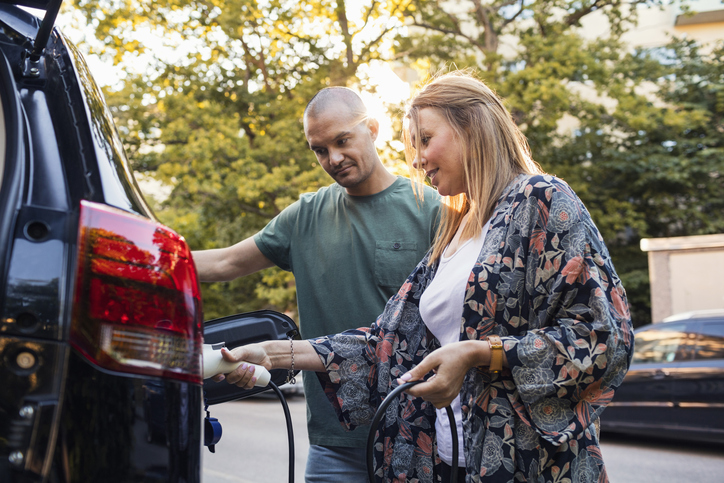
Maskot/Maskot/Getty images
Written by Caitlin Ritchie
Edited by Hannah Hillson
Last updated 11/02/2022

Maskot/Maskot/Getty images
Why trust SaveOnEnergy?
Learn MoreAt SaveOnEnergy, we work to offer accurate information with editorial integrity.Our partners do not direct our editorial content, though we may reference their products in our posts. Read more about how we make money.
Every EV in the U.S. is compatible with Level 1 and Level 2 chargers using a J1772 connector. This includes Teslas, although they require an adapter.
The cost to charge an EV at home will depend on how many miles per kilowatt-hour (kWh) your EV receives, the average electricity rate you pay, and how many miles you drive per month. Our EV charging costs page can help you estimate how much charging an EV would add to your electricity bill each month.
Yes, most EV purchases will come with a connector so you can charge your vehicle with a Level 1 charger (which gets power from a regular 120-volt outlet). You can pay extra to upgrade to a Level 2 charger. If you purchase a Tesla, you may consider purchasing additional adapters, depending on the public charging options in your area.
Enter your ZIP code to get started